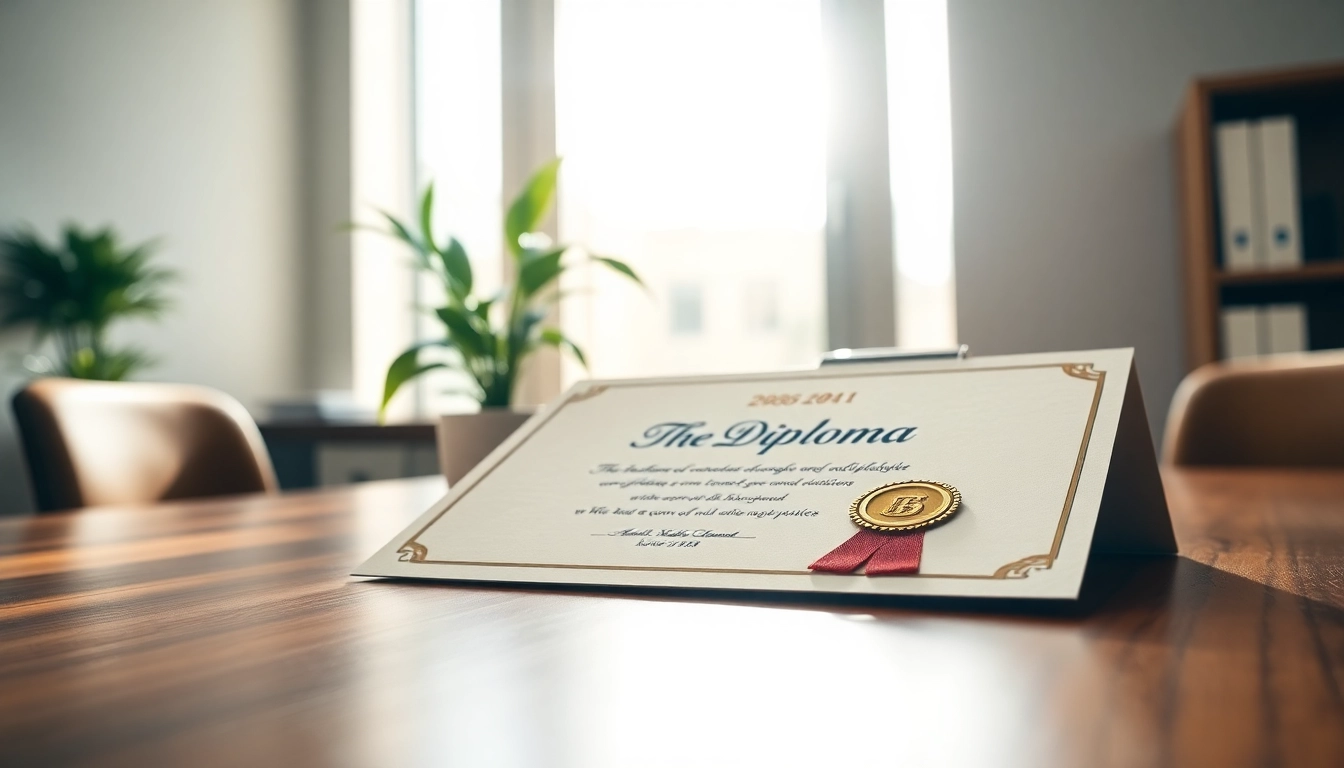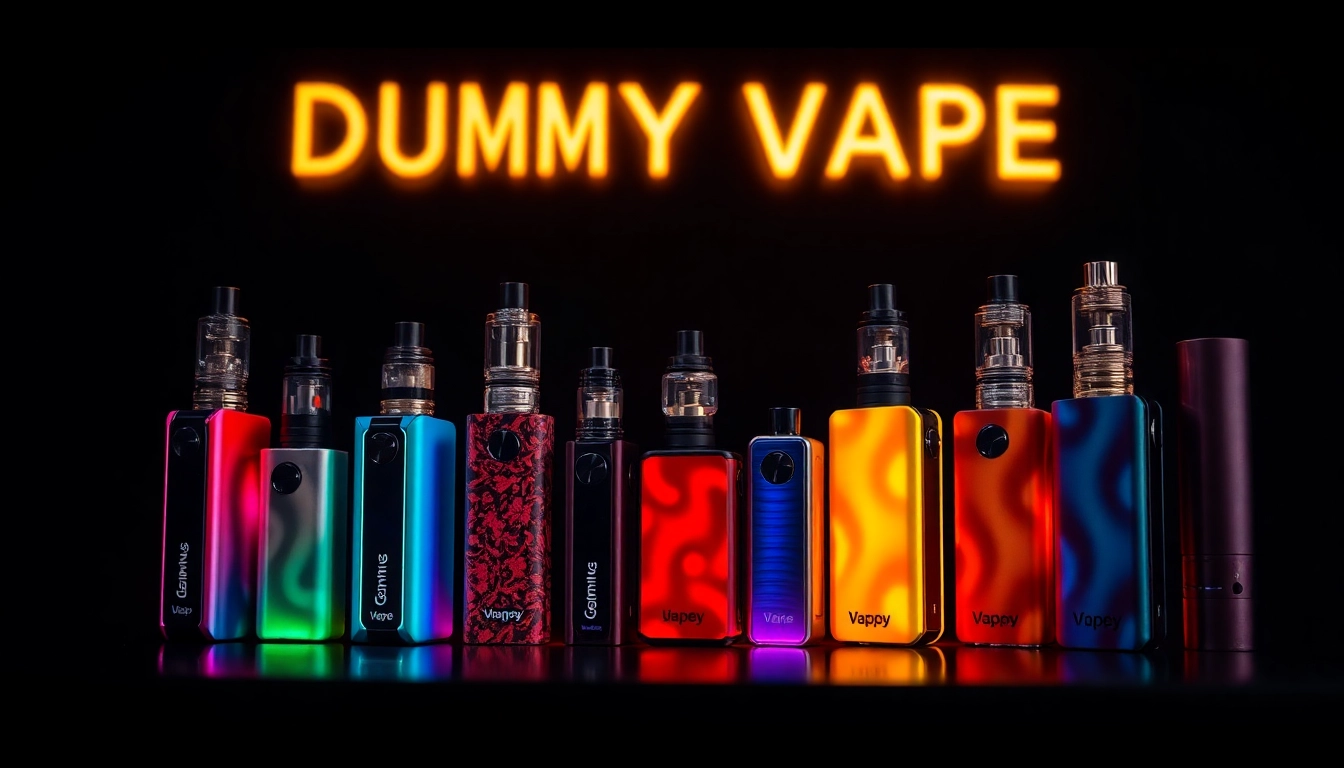Understanding the Need to Buy Diploma
In a world where educational credentials can significantly influence career opportunities, the allure of acquiring a diploma or degree, even when one hasn’t officially earned it, has gained popularity. Many individuals consider the option to buy diploma certificates for a variety of reasons. Understanding the underlying motives can help clarify the context for such decisions and navigate the implications that accompany them.
1. Common Reasons for Purchasing Diplomas
The motivations behind purchasing diplomas are often varied and complex. Here are some of the most common reasons:
- Career Advancement: Many professionals believe that holding a degree can enhance their employability and lead to better job prospects. In competitive job markets, even perceived qualifications can make a difference.
- Personal Fulfillment: Some individuals seek a diploma for personal achievement or to meet family expectations, particularly if they’ve previously attended educational institutions but did not complete their studies.
- Replacement for Lost Credentials: Some people buy diplomas to replace those lost or damaged over time. For them, having a physical copy is necessary for personal records or when applying for jobs.
- Academic Pranks or Gags: In some cases, individuals may purchase diplomas for humorous purposes or as part of a prank among friends.
- Fraudulent Intent: Unfortunately, some purchasers may seek diplomas for unethical reasons, such as attempting to deceive employers regarding their qualifications. This scenario carries significant risks and potential legal consequences.
2. The Difference Between Fake and Real Diplomas
Understanding the distinction between a fake diploma and a legitimate one is crucial. Real diplomas are issued by accredited educational institutions, reflecting actual academic achievements. In contrast, fake diplomas, often sold online, mimic the appearance of real ones without granting true educational validation.
Key differences include:
- Authentication: Real diplomas are verified through educational institutions, while fake diplomas can be customized with no legitimate source.
- Legal Standing: Real diplomas are legally recognized and can open doors to educational and career opportunities, whereas fake diplomas can lead to legal repercussions if used deceitfully.
- Perceived Value: Employers typically have protocols for verifying educational backgrounds, rendering fake diplomas futile in competitive situations.
3. Legal Considerations and Ethical Implications
Purchasing a diploma raises a myriad of legal and ethical concerns. While the act itself may not always be illegal depending on how one intends to use it, ethical implications abound. Many professionals argue that misrepresenting qualifications undermines the value of education and distorts competition in the job market.
Possible legal consequences include:
- Fraud Charges: Using a fake diploma to secure employment can result in fraud charges, leading to fines or imprisonment.
- Job Termination: Discovery of a fake diploma can lead to immediate termination from a job as it violates most employment contracts.
- Reputation Damage: Being associated with fraudulent practices can seriously damage one’s professional reputation, affecting future employment opportunities.
Choosing the Right Service to Buy Diploma
When considering buying a diploma, selecting the right service provider is crucial to ensure that the product meets one’s needs, especially in terms of quality, authenticity, and service reliability.
1. Evaluating Online Diploma Providers
As the demand for buying diplomas grows, various online providers have emerged, each with different standards and offerings. Here are several pointers for evaluating potential sources:
- Accreditation: Look for providers that specify their partnerships with well-known educational institutions or state their compliance with educational regulations.
- Product Samples: Quality providers should offer examples of their diplomas to evaluate design and legitimacy.
- Customer Service: A responsive customer service team can indicate reliability. Providers that offer direct communication channels often demonstrate a commitment to customer satisfaction.
2. Quality and Customization Options
Quality varies significantly among diploma providers. Shoppers should look for services that offer:
- High-Quality Materials: Diplomas should be printed on quality paper and include professional-grade features like embossed seals or gold foil.
- Customization: Services that allow for personalization of names, degrees, and even institutions might cater better to specific personal requirements.
- Design Choices: Look for providers that boast a range of design options mimicking actual diplomas from various institutions.
3. Comparing Prices and Services
Price comparison can help you narrow down your choices. However, the cheapest option is not always the best. Key considerations include:
- Hidden Costs: Some providers might list low base prices but add charges for shipping, customization, and expedited processing. Be sure to factor these in when comparing costs.
- Return Policies: A reputable service typically has a clear return policy in case the diploma does not meet expectations.
- Guarantees: Companies that offer tracking or guarantees for their work demonstrate a commitment to customer satisfaction.
How to Buy Diploma Online Safely
Buying a diploma online can offer convenience, but it requires caution to ensure a safe transaction. Here are essential guidelines to enhance your online purchasing experience:
1. Secure Payment Options
Using secure payment methods can protect personal information during transactions. Look for sites that provide:
- Secure Sockets Layer (SSL) Encryption: Verify that the website displays a padlock icon in the address bar, indicating secure data transmission.
- Reputable Payment Processors: Opt for platforms like PayPal or credit cards that offer buyer protection and dispute resolution options.
- Transparent Billing: Clear billing descriptions reduce the risk of unexpected charges.
2. Verifying the Credibility of the Seller
Before completing a purchase, it’s vital to verify the credibility of the seller. Consider taking the following steps:
- Look for Reviews: Research customer testimonials and reviews on independent sites to gauge previous clients’ experiences.
- Check Business Credentials: Reputable businesses often have contact information, certification, and a physical address listed on their website.
- Contact the Provider: Reach out directly with questions or concerns. A prompt response can indicate a professional and trustworthy provider.
3. Customer Reviews and Testimonials
Reading up on customer reviews provides insight into the quality of the services offered by diploma providers:
- Third-Party Platforms: Use review platforms that provide unbiased assessments instead of relying solely on testimonials found on the provider’s site.
- Look for Patterns: Take note of recurring themes in reviews—both positive and negative—to get a sense of overall consumer satisfaction.
- Consider Social Media Feedback: Platforms like Facebook and Twitter often feature candid reviews from customers that may not be found elsewhere.
After the Purchase: Making the Most of Your Diploma
Once you acquire your diploma, it’s essential to maximize its use while also understanding the boundaries surrounding its legitimacy. Here are some tips:
1. How to Display Your Diploma
Displaying your diploma can enhance your personal or professional spaces. Consider these methods:
- Framing: Invest in a quality frame that complements your diploma’s design. This not only protects the document but also adds to its aesthetic appeal.
- Placement: Choose locations that garner attention, such as offices or living rooms, but avoid ostentatious displays that could raise questions about authenticity.
- Digital Copies: For flexibility, consider scanning the diploma to keep a digital copy for online portfolios or job applications.
2. Using Your Diploma for Job Applications
How you leverage your new diploma in a job search can impact your success:
- Tailored Resumes: Ensure that your resume showcases the diploma appropriately while emphasizing skills and experiences relevant to potential roles.
- Networking: Use your diploma as a conversation starter in professional networking settings—display confidence but also readiness to discuss your true educational journey.
- Prepare for Verification: Be ready for employers to conduct background checks. Having a plan for discussion regarding your qualifications is essential.
3. Understanding the Limitations of a Purchased Diploma
While diplomas can be beneficial for certain situations, they come with limitations:
- Job Market Reality: Most employers acknowledge the potential for degree misrepresentation and are equipped with processes to verify credentials.
- Career Advancement Challenges: If you intend to pursue higher levels of education or qualifications, a fake diploma won’t grant you legitimacy in advanced programs.
- Legal Risks: Using a purchased diploma in professional scenarios opens you up to legal ramifications, underscoring its best-use cases as mementos or for personal validation only.
Frequently Asked Questions About Buying Diplomas
1. Can I use a purchased diploma for official purposes?
Generally, purchased diplomas should not be used for official purposes, such as employment verification or further academic pursuits. This could lead to serious consequences.
2. What types of diplomas can I buy?
Purchased diplomas can include high school diplomas, college diplomas, and some professional certifications, all tailored to resemble legitimate degrees from real educational institutions.
3. How to return or exchange a diploma if needed?
Most reputable diploma providers should have a clear return policy. Ensure to read and understand this before purchase to facilitate a smooth return or exchange process if the diploma does not meet your expectations.



